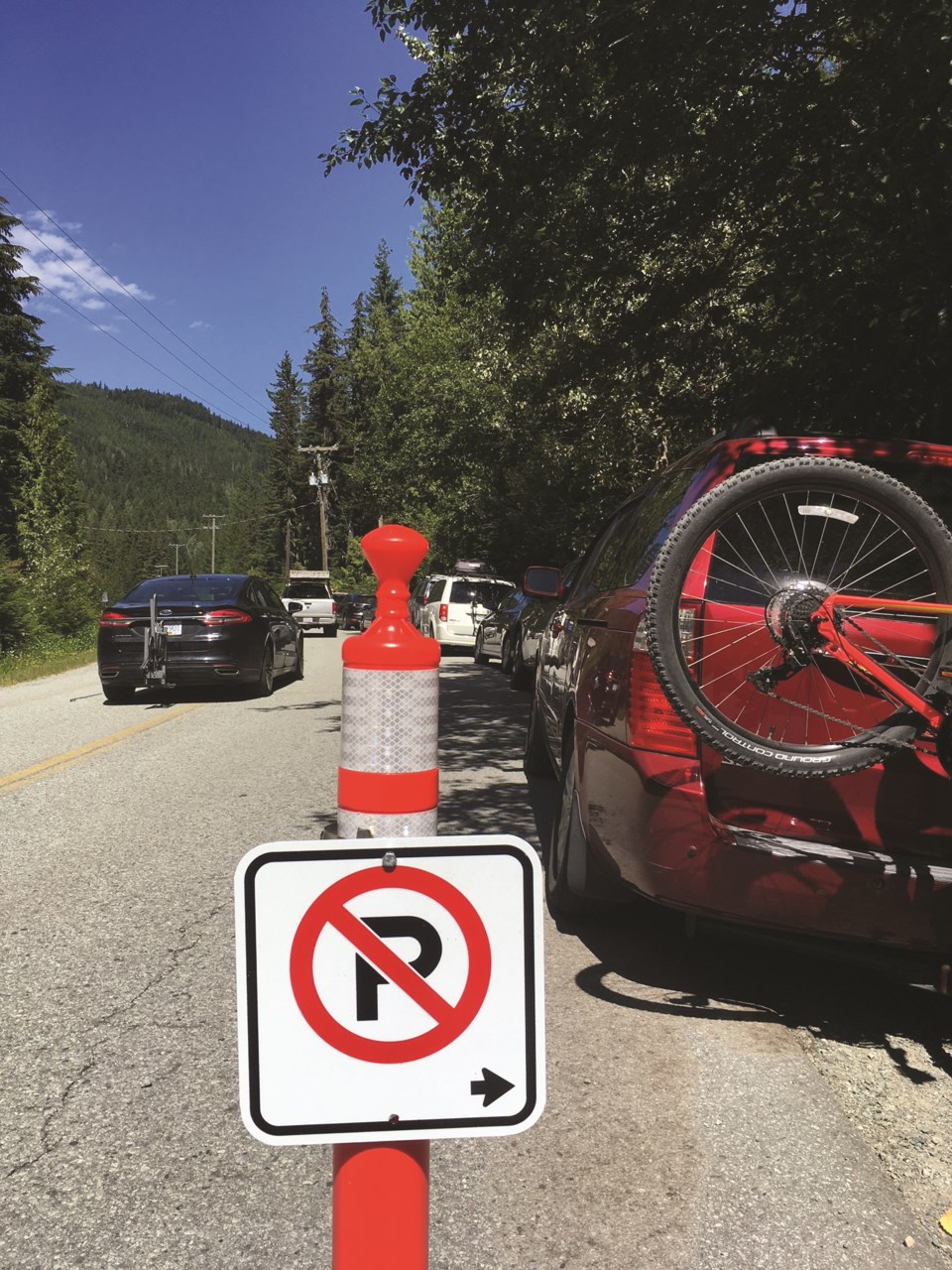What is it about pay parking that gets Whistlerites so riled up?
In the last several weeks we have seen a petition started by a local against the current pilot project that launched pay parking at local parks, and a very healthy debate going on about the issue on social media.
(Remember 2011 when pay parking was introduced and ended up being one of the main factors leading to the ousting of Whistler’s entire mayor and council?)
The plan for parking at local parks has been out in the public eye since March of this year and was almost immediately met with opposition—though with snow on the ground it was muted. But once the weather turned and parks were on the active agenda it sunk in that we have to pay $2 an hour between 10 a.m. and 6 p.m. at four local green spaces, Rainbow, Lakeside, Alpha and Wayside.
Initially the whole idea behind the pay parking at these spaces was to help manage the insane vehicle traffic we saw last summer, and indeed in the previous ones as well, as visitors and locals alike enjoy the outdoors. There is no doubt that last year was a crazy one as throngs of people escaped to Whistler to get outside following health guidelines under COVID-19.
Vehicles were parked for kilometres along Westside Road to access Rainbow Park and the bike trails in the area too.
Neighbourhood streets in some places, such as those close to Lakeside Park, practically became single-lane with cars parked on both sides of the road. And lest you think it’s a so-last-year problem, the July 20 council package contained a letter from several residents of Panorama Ridge concerned about what was happening on their street.
“Over the last several years, summer street parking has continually increased, to the point where it is impossible to walk or ride a bike on Panorama without infringing on traffic,” said the residents in their letter.
“A few weeks ago, a cyclist was injured when he collided with a parked vehicle and was taken away by ambulance.
“The annual increase in street parking coincides with pay parking coming into effect, driving people away from the lots onto residential streets.”
While pay parking at the four parks is new this summer, pay parking is in effect at all the Day lots (1 through 5) in the summer. Lots 4 and 5 are user pay in peak season only right now, but staff has advised council in their transportation plan that the lots should all be pay parking in the near future. The change would bring in an extra $100,000 a year.
The money raised from parking goes to support transit efforts in the municipality such as all the free transit on weekends in the summer, including a new shuttle to get people to the four parks with pay parking.
As the grumbling about the user-pay model at the parks continued, the municipality added in to its reasoning the on-going need to address our biggest climate change problem—the elephant in the room—driving our cars.
Using municipal statistics we could cut up to 120 tonnes of GHG emissions a month if residents each eliminated one car trip a week.
Absolutely there are going to be days when we are going to go to the park with an all-day picnic, towels and games for the whole family, water toys, blankets, sun tents and more—and on those days we are going to get dinged for the pay parking. But on other days can we take the bikes, or get the free shuttle?
After all, we all know that this change away from our dependence on fossil fuel powered cars has got to be made.
Wrote Claire Ruddy of AWARE in a recent Letter to the Editor, “Change will absolutely not always be easy or convenient (timely example being user-pay parking fees in parks), and we may ask why some changes are happening ahead of others, but the goal must be progress rather than perfection, and many changes will bring opportunities to become a healthier, more resilient community.”
Perhaps the pilot project on the pay parking at our most popular lakeside parks will get tweaked as council looks ahead to summer 2022, just a few months before the October municipal election.
It’s going in the right direction, but more transit is needed if park users are going to stop driving. Free shuttles are needed every day as local families and residents go to these areas during the week when school is out in the summer.
We can do this—after all, during the 2010 Olympic Games we were not allowed to drive at all on the highway or into the village, and while there was plenty of complaining heading into the plan, by the time the event was over we were all wishing the bus service could keep going as it was.





